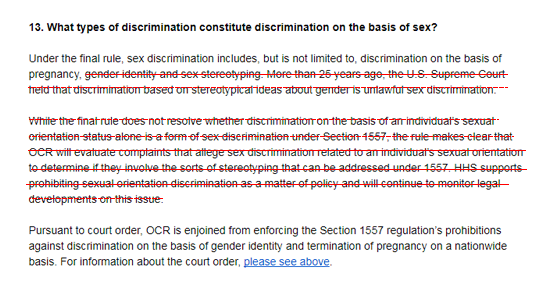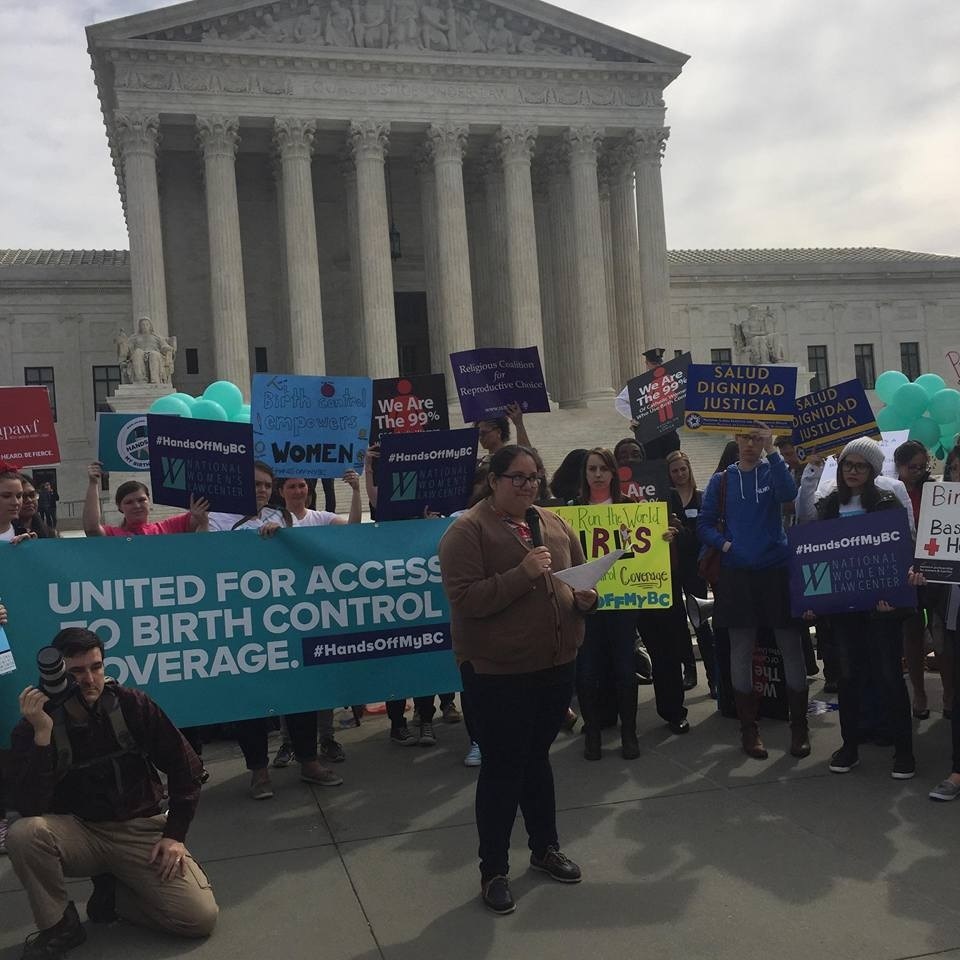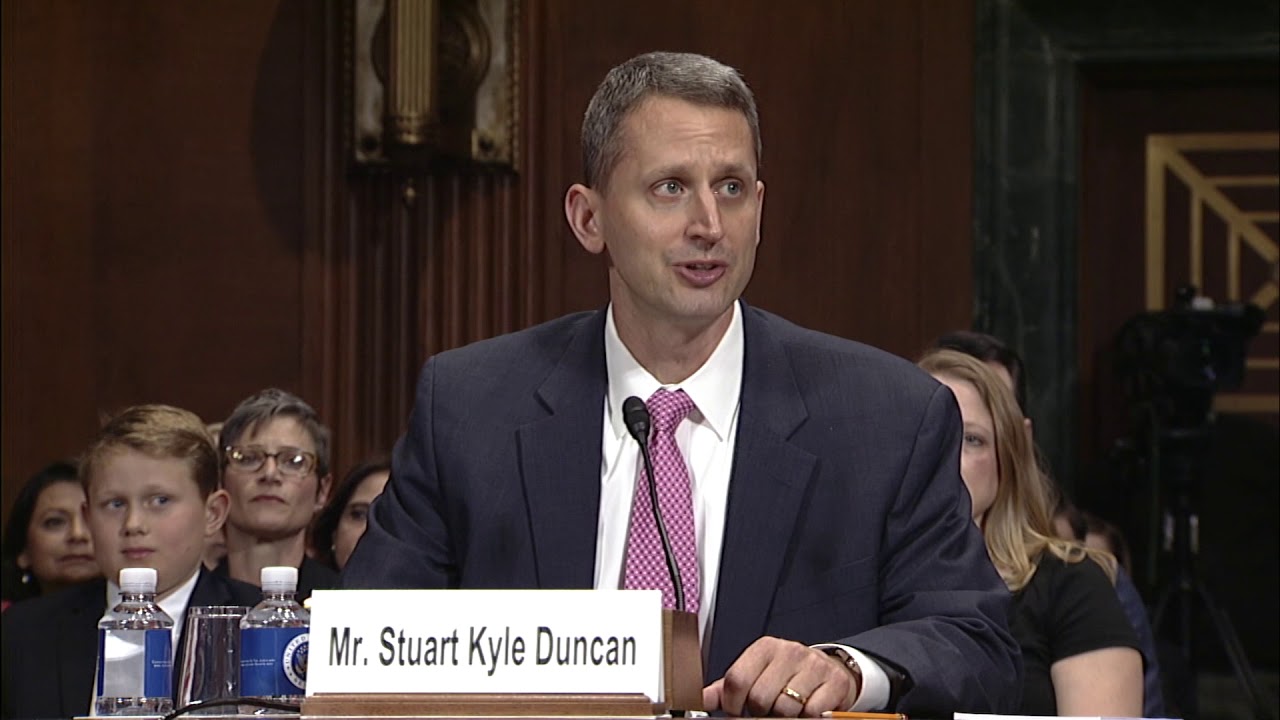Make your tax-deductible gift by December 31—every gift matched, up to $150,000!
In this moment, the future of our rights, our bodily autonomy, our freedom feels uncertain. What we do next will make a difference for decades to come.
Make your tax-deductible gift by December 31—every gift matched, up to $150,000!
In this moment, the future of our rights, our bodily autonomy, our freedom feels uncertain. What we do next will make a difference for decades to come.
Double your impact in the fight to defend and restore abortion rights and access, preserve access to affordable child care, secure equality in the workplace and in schools, and so much more. Make your matched year-end gift right now.

 The Trump administration wants to legalize discrimination in health care. Yes, you read that correctly.
The Trump administration wants to legalize discrimination in health care. Yes, you read that correctly.
The Health Care Rights Law, which is part of the Affordable Care Act, is a groundbreaking civil rights statute that makes it illegal for health care providers to discriminate on the basis of race, color, national origin, sex, age, or disability. Health insurers, hospitals, clinics, and any other entities that receive federal funds have to comply. This law is a huge deal — until 2010, there was no broad federal prohibition on denying someone health care or insurance coverage because of their sex. 2010!
The Health Care Rights Law, like most other laws, is implemented through agency rules. You can think of a law like a task Congress assigns to an agency, whereas a rule represents the agency’s plan to accomplish that task. Because of this, rules play a critical role in guaranteeing individual rights.
In 2016, HHS issued a rule making it clear that sex discrimination includes denial of care on the basis of gender identity, sex stereotypes, pregnancy, or termination of pregnancy. The 2016 rule also has important requirements that ensure people with limited English proficiency can access the care they need and know their rights. This represented a huge step toward finally ending discrimination in health care by stopping it before it happens and giving people a remedy if they faced discrimination.
The Trump Administration’s idea of what prohibiting discrimination means is…different. And it looks a lot like promoting discrimination. They recently proposed a new rule that would dismantle the 2016 regulations and erode basic civil rights protections. Ugh. While the Trump Administration can’t change the underlying law itself, the Proposed Rule is an attempt to severely undermine its protections. UGH!
Here are 6 ways the Proposed Rule promotes – instead of prohibits – discrimination:
Let’s be clear — this Proposed Rule encourages discrimination in a wide variety of health care settings. Under the Trump Proposed Rule, health care providers could deny people care because they’ve had an abortion, because of their gender identity or sexual orientation, or because they don’t speak English.
So, to recap: The Health Care Rights Law prohibits discrimination in health care. But the Trump Administration’s plan is to implement that law in a way that would…encourage discrimination? If you’re confused, you’re not alone. It’s clear that the Trump Administration is not interested in protecting patients. This Proposed Rule is part of their broader agenda to allow health care providers’ personal beliefs to dictate patient care.
But there’s still time to make sure this harmful rule isn’t enacted. We have until August 13th to submit comments to the Trump Administration in opposition to this rule. We have to tell them that it’s wrong for health insurers, hospitals, and clinics to decide who deserves health care. It’s time for the Trump Administration to #PutPatientsFirst.



